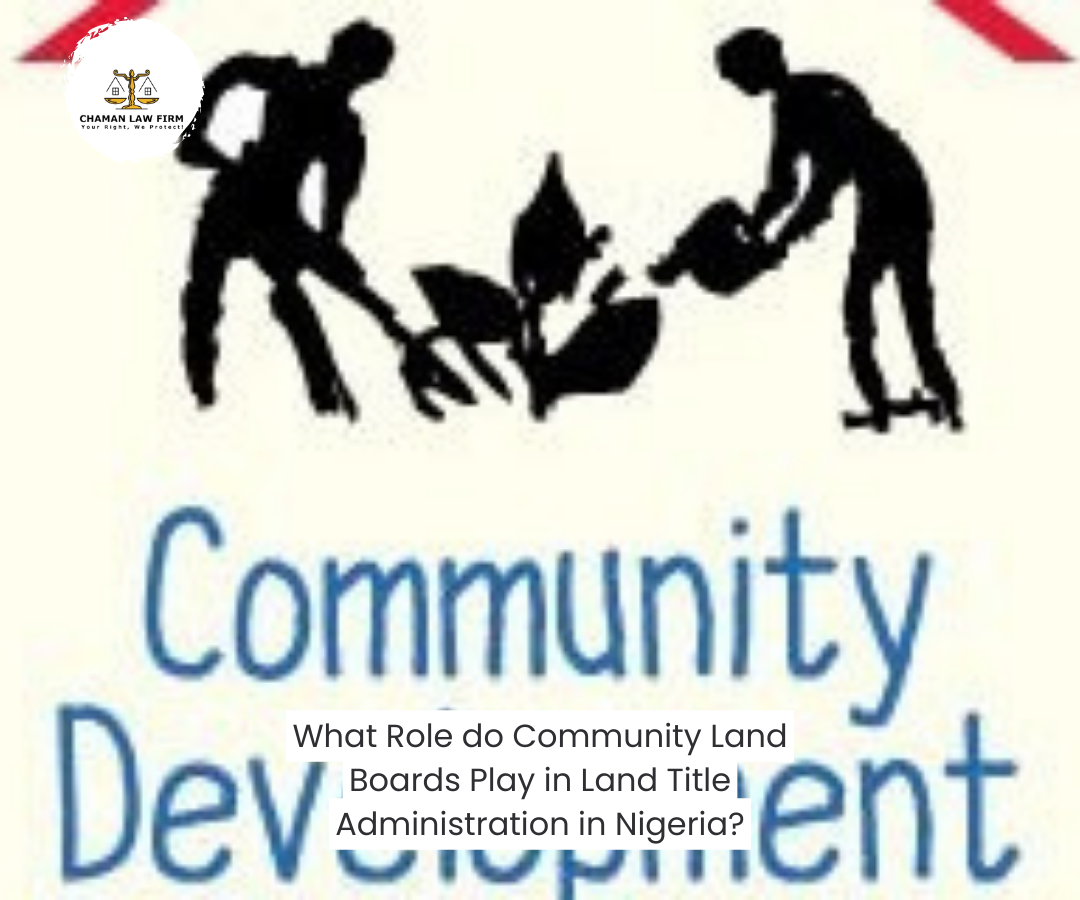
Introduction
In Nigeria, the administration of land titles can be a complex process due to diverse land tenure systems and increasing demands for urban and rural land. Community Land Boards (CLBs) have emerged as essential intermediaries, playing a pivotal role in ensuring efficient and equitable land title administration.
Understanding Community Land Boards
Local Oversight: CLBs are community-based organizations that oversee land-related affairs at the grassroots level. They are typically established in rural and peri-urban areas.
Customary Land Governance: They incorporate customary land governance systems, ensuring that local traditions and practices are considered in land title administration.
The Vital Roles of Community Land Boards
Conflict Resolution: CLBs help mediate land-related disputes within communities, preventing conflicts that could escalate.
Community Representation: They ensure that community voices are heard and considered in land title decisions, avoiding land grabs and unfair practices.
Transparent Processes: CLBs promote transparent, participatory, and culturally sensitive processes in land allocation and title issuance.
The Structure of Community Land Boards
Local Representation: CLBs consist of members elected from the community, including traditional leaders, women, and youth representatives.
Regulatory Framework: Their operations are guided by legal frameworks that vary from state to state but often integrate customary practices.
Challenges and Considerations
Capacity Building: Ensuring CLBs are equipped with the knowledge and skills to carry out their roles effectively.
Resource Constraints: Addressing financial and infrastructural limitations that may hinder CLBs’ performance.
Gender Inclusivity: Promoting the active participation of women in CLBs to prevent gender bias in land title decisions.
Success Stories and Case Studies
Benue State, Nigeria: Benue State has effectively integrated CLBs into its land administration system, facilitating fair and transparent land management.
Ghana: The Ghanaian experience showcases the successful collaboration between CLBs and government agencies, enhancing land title security.
Policy Implications
Legal Frameworks: Developing and updating legal frameworks that recognize and empower CLBs in land title administration.
Training and Capacity Building: Providing training and resources to ensure CLBs can effectively carry out their responsibilities.
Gender Equity: Promoting gender inclusivity within CLBs to address gender-specific land issues.
Conclusion
Community Land Boards are integral in achieving transparent, equitable, and community-oriented land title administration in Nigeria. Recognizing their significance and ensuring they have the necessary support and resources will contribute to more inclusive and efficient land management, reducing conflicts and promoting responsible land use.
WRITTEN BY CHAMAN LAW FIRM TEAM
Email: chamanlawfirm@gmail.com, info@chamanlawfirm.com
TEL: 08065553671, 08024200080

